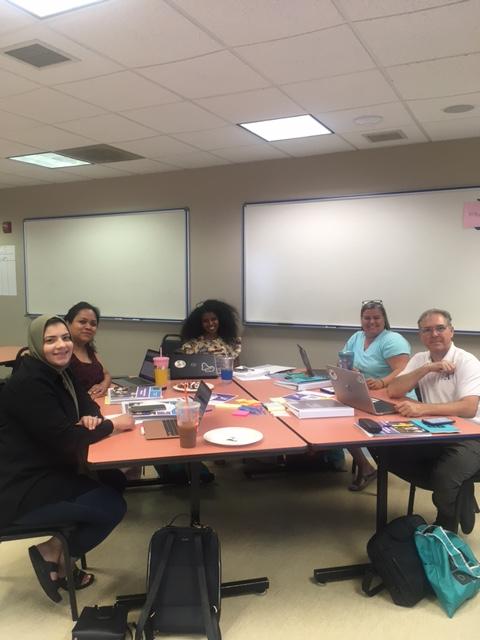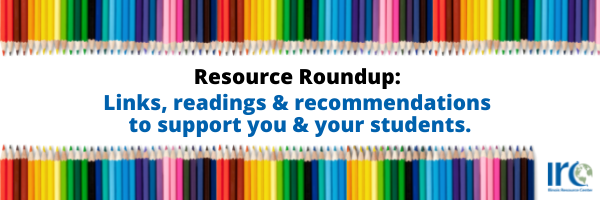 Teaching remotely during a global pandemic is a challenge for any educator, but teaching the youngest learners is a particularly big adjustment. But Cecilia Villegas, a bilingual kindergarten teacher in Barrington School District 220, noticed her students were catching on to the technology, from the use of tablets to maneuvering Zoom breakouts, very quickly. “To see their fear but also their accomplishments, it was like, ‘Wait a minute, there’s something more powerful,’” Villegas says. “There needs to be more focus in the computer science area than just the basic tools. I wanted to know, what else can they do with an iPad? To me, that was very inspiring.”
Teaching remotely during a global pandemic is a challenge for any educator, but teaching the youngest learners is a particularly big adjustment. But Cecilia Villegas, a bilingual kindergarten teacher in Barrington School District 220, noticed her students were catching on to the technology, from the use of tablets to maneuvering Zoom breakouts, very quickly. “To see their fear but also their accomplishments, it was like, ‘Wait a minute, there’s something more powerful,’” Villegas says. “There needs to be more focus in the computer science area than just the basic tools. I wanted to know, what else can they do with an iPad? To me, that was very inspiring.”
Her experiences with her students’ progress with technology during remote learning inspired Villegas to apply for the inaugural cohort of Computer Science for Every Learner (CSEL), a groundbreaking new professional development initiative from the IRC to provide computer science skills among bilingual/ESL teachers, and educators from underserved schools with large minoritized student populations. The inaugural cohort included bilingual educators from Kindergarten through 12th grade from around the state seeking to integrate computer science in their classrooms and equip their students for a tech-forward future.
“Responding to the increase in technology use in society will help all students, including emergent bilinguals, to succeed,” says Daniel Fernandez, a science and Spanish teacher at DuPage High School. “This is something that they will need to learn about.”
Fernandez says he was interested in exploring areas where computer science could be integrated into a bilingual curriculum, particularly for newcomer students who may not have the same level of initial technological literacy. “The goal is to give them an equitable education, the same learning opportunities,” he says.
The cohort was introduced to some of the general concepts of computer science, including an introduction to Code.org’s Code Studio. Fernandez, who says he does not have a computer science background, appreciated the ease and simplicity of Code.org’s curriculum, and the emphasis on self-directed, discovery-based lessons to help give students agency in their learning.
One of the key takeaways Villegas plans to take back to her district is the importance of teaching kids the proper terms and vocabulary around computer science from the start. “It’s not just iPad time, but computer science time,” she says. “I do use the right terminology with core subjects, but I did not think about it with computer science time. Reflecting on her experience with the summer CSEL cohort, she considers how she will adapt these lessons to meet her students’ needs and challenge them.
Villegas says she enjoyed the opportunities for play and creativity, exploring the tools in Code Studio—she particularly loved creating a welcome message in the app lab and adding personal touches reflective of her school and students. In reflecting on the activities, she wondered about the possibilities of presenting new ideas or tools to her students and how to approach and empower that sense of possibility. “I was given the opportunity to create something that was of interest to me and that sparked my curiosity,” she says. “It keeps you engaged and makes you want to learn even more.”
Villegas encourages prospective educators who may be interested in this computer science integration to take a risk and explore opportunities such as the CSEL cohort. “Computer science is more than just one computer or program,” she says. “It’s relationships, it’s working together as teams, it’s providing a different way of teaching and learning for your students, and it’s another language that gives communication power to your students.”


